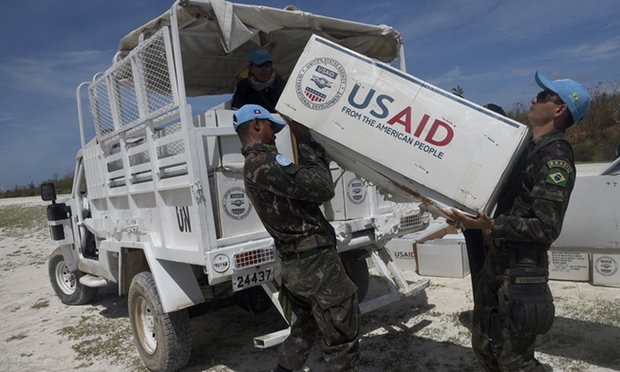The United States is supporting Nigeria to develop its agriculture sector into a more diversified, inclusive and dynamic driver of economic development, the U.S. Agency for International Development (USAID) has said.
Roseann Casey, the USAID/Nigeria Director of Economic Growth and Environment, said this in a statement signed by Jana T. Sweeny, the Development Outreach and Communications Specialist (DOC), and made available to newsmen on Monday in Lagos.
Casey said in pursuit of the objective, USAID/Nigeria recently hosted two-day workshops between Sept. 26 and Oct 11, in Lagos, Kano, and Abuja.
She explained that the results from the consultative workshops would inform a new food security country plan for Nigeria.
“The U.S. Agency for International Development (USAID) convened a broad spectrum of agricultural stakeholders to develop a shared vision for development of the sector under the U.S. government’s new Global Food Security Strategy.
“The U.S. Global Food Security Act authorizes a comprehensive, strategic approach for U.S. foreign assistance to reduce global poverty, hunger, and malnutrition in 12 target countries, including Nigeria.
“In two-day workshops held in Lagos, Kano, and Abuja from September 26 to October 11, some 180 participants examined the past, present, and future of agricultural and nutrition developments in the country,’’ she said.
The USAID/Nigeria director said that the workshops identified common objectives, and developed action plans to develop agriculture in Nigeria under the new strategy.
She said that representatives came from academia, community-based organisations, non-governmental organizations, financial institutions, value chain actors, agriculture and nutrition-related associations, government agencies, donor agencies, and media.
“With these workshops, the United States has demonstrated its commitment to helping to develop agriculture into a more diversified, inclusive and dynamic driver of economic development in Nigeria,” Casey said.
The participants, she said, discussed key issues including access to finance for farmers and other value chain actors, particularly women and youth.
The director added that discussions addressed the need to strengthen market systems and value chains and improve access to agricultural inputs and training for farmers.
Casey said that the participants also highlighted the importance of making healthy and nutritious food available and accessible, especially for lactating and pregnant mothers, and children.

